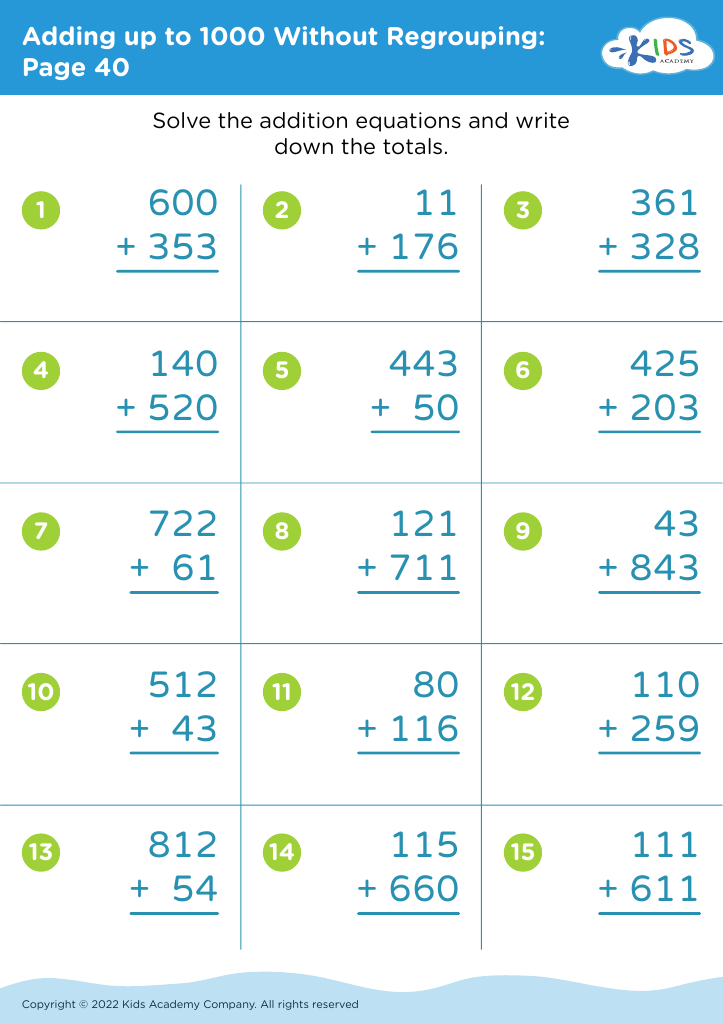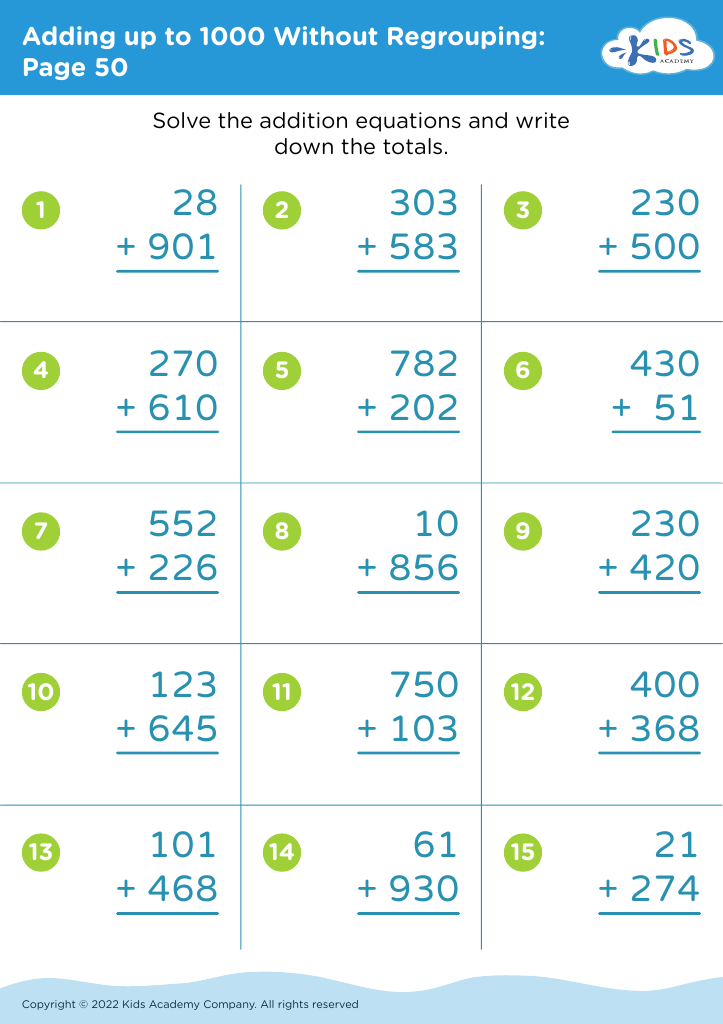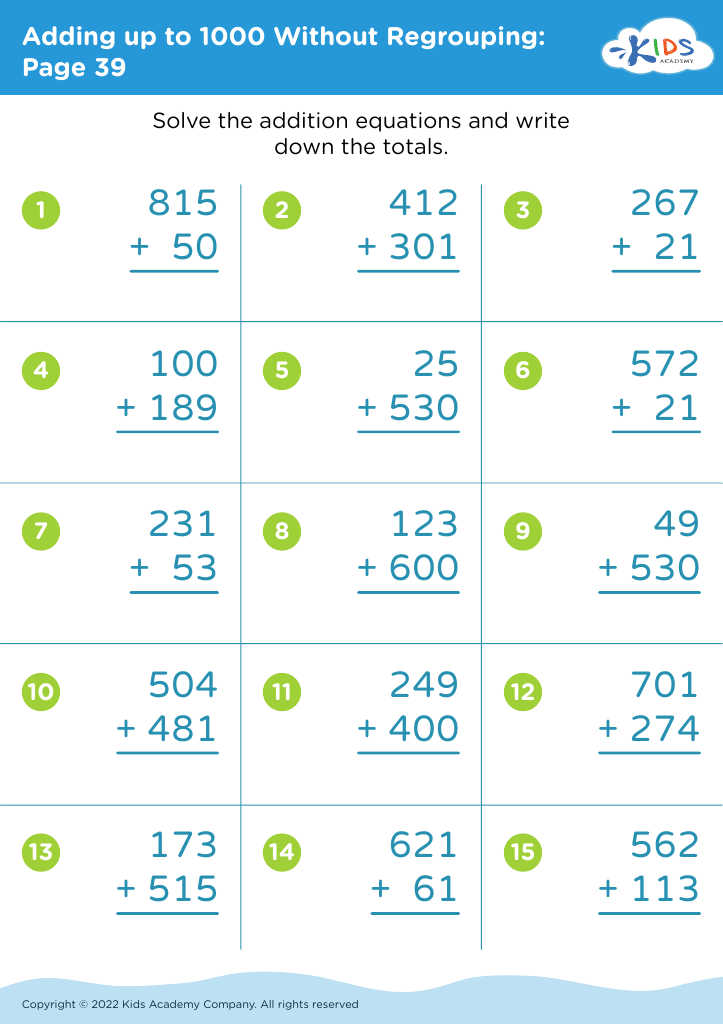Alphabet Recognition Adding up to 1000 Worksheets for Ages 5-9
4 filtered results
-
From - To
Introducing our "Alphabet Recognition and Adding Up to 1000 Worksheets" designed for children ages 5-9! These engaging worksheets blend letter recognition with fascinating math challenges, promoting essential early literacy and numeracy skills. Young learners will explore the alphabet through fun activities, while also practicing addition with numbers up to 1000. Our carefully crafted exercises help develop critical thinking, enhance memorization, and foster confidence in budding mathematicians and readers. Perfect for classroom use or home practice, these worksheets create a dynamic learning experience. Dive into a world of learning where letters and numbers come together in a fun and educational way!
Alphabet recognition is a foundational skill crucial for children aged 5-9, as it serves as the building block for literacy and learning. Parents and teachers should prioritize this skill because it significantly impacts a child's reading ability, vocabulary development, and overall academic success. When children can quickly identify and understand letters, they are better equipped to decode words, which in turn improves reading comprehension and fluency.
Additionally, alphabet recognition supports cognitive development and enhances a child’s confidence in their abilities. Mastery of the alphabet lays the groundwork for other educational milestones, such as writing and spelling. Furthermore, early literacy skills correlate strongly with later academic performance; children who struggle with alphabet recognition may find themselves at a disadvantage in school.
Incorporating engaging and interactive activities, such as games and songs, can make learning enjoyable and effective, fostering a love of reading from an early age. Both parents and teachers play vital roles in creating a supportive learning environment where children can practice and refine their skills. Investing time and effort in alphabet recognition not only equips children with necessary tools for school but also encourages lifelong learning habits, ultimately benefiting their future academic careers.




















